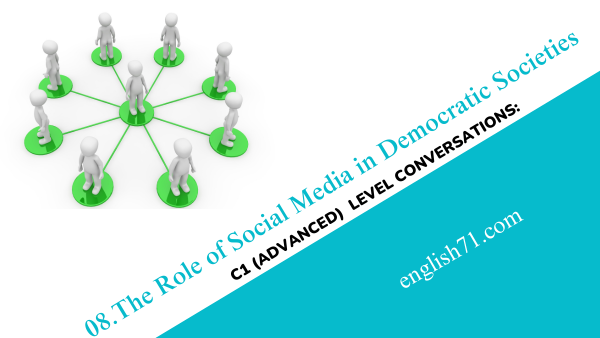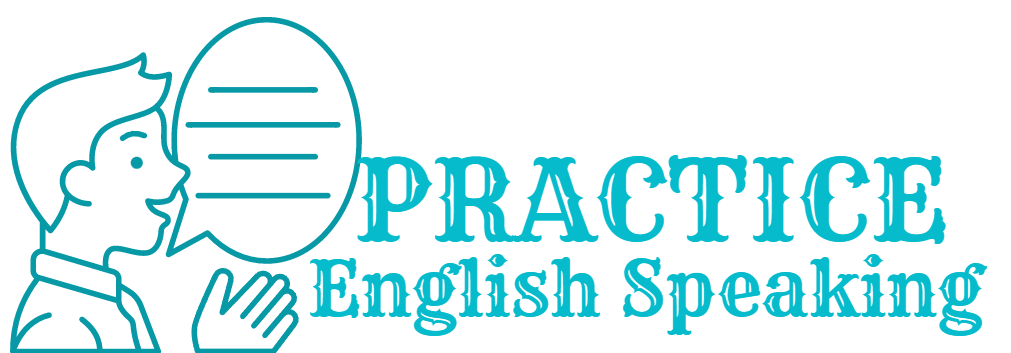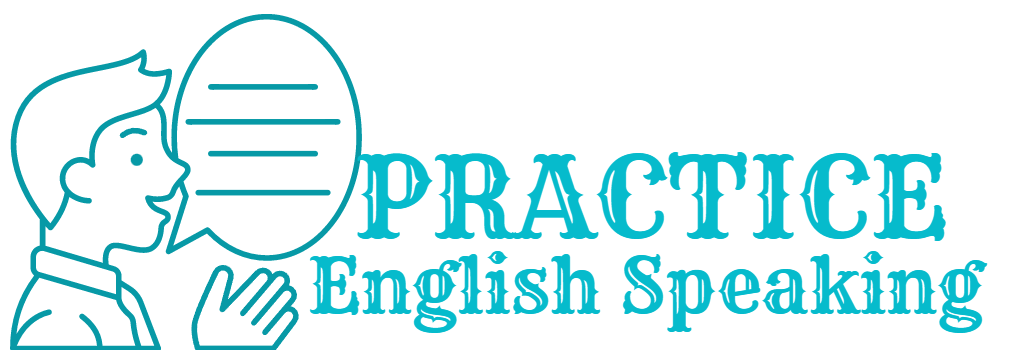C1 (Advanced) level Conversations: (8) The Role of Social Media in Democratic Societies

Sophie: Hey Nick, have you ever thought about how social media impacts our democratic societies?
Nick: Absolutely, Sophie. It’s a complex topic. On one hand, social media provides a platform for citizens to express their opinions and participate in political discussions more freely.
Sophie: That’s true. It democratizes information sharing and allows marginalized voices to be heard. But there’s also concern about misinformation and echo chambers. What do you think?
Nick: I agree. The spread of fake news and echo chambers can polarize public opinion and undermine democratic values. But regulating social media content is a tricky balance between free speech and preventing harm.
Sophie: It’s a fine line indeed. And what about the influence of social media on political campaigns and elections?
Nick: Social media has revolutionized political campaigning, allowing candidates to reach a broader audience and engage with voters directly. But there are ethical concerns about data privacy, targeted ads, and foreign interference.
Sophie: Definitely. Transparency and accountability are essential to ensure the integrity of democratic processes. But how can we navigate the challenges posed by social media?
Nick: Education and media literacy are key. Teaching people to critically evaluate information and recognize biases can empower them to make informed decisions. Also, promoting diverse perspectives and civil discourse can counteract polarization.
Sophie: Agreed. Building a resilient democratic society in the digital age requires collaboration between policymakers, tech companies, and civil society to safeguard democratic principles while harnessing the potential of social media for positive change.
Nick: Absolutely, Sophie. By addressing these challenges and harnessing the potential of social media responsibly, we can strengthen our democratic societies and ensure that everyone’s voice is heard.



Summary:
Sophie and Nick engage in a thoughtful discussion about the role of social media in democratic societies. They acknowledge its potential to democratize information sharing and political participation, but also highlight concerns such as misinformation, polarization, and the influence on political campaigns. They emphasize the importance of media literacy, transparency, and civil discourse in navigating these challenges. Overall, they advocate for a collaborative approach involving policymakers, tech companies, and civil society to harness the benefits of social media while safeguarding democratic principles.

